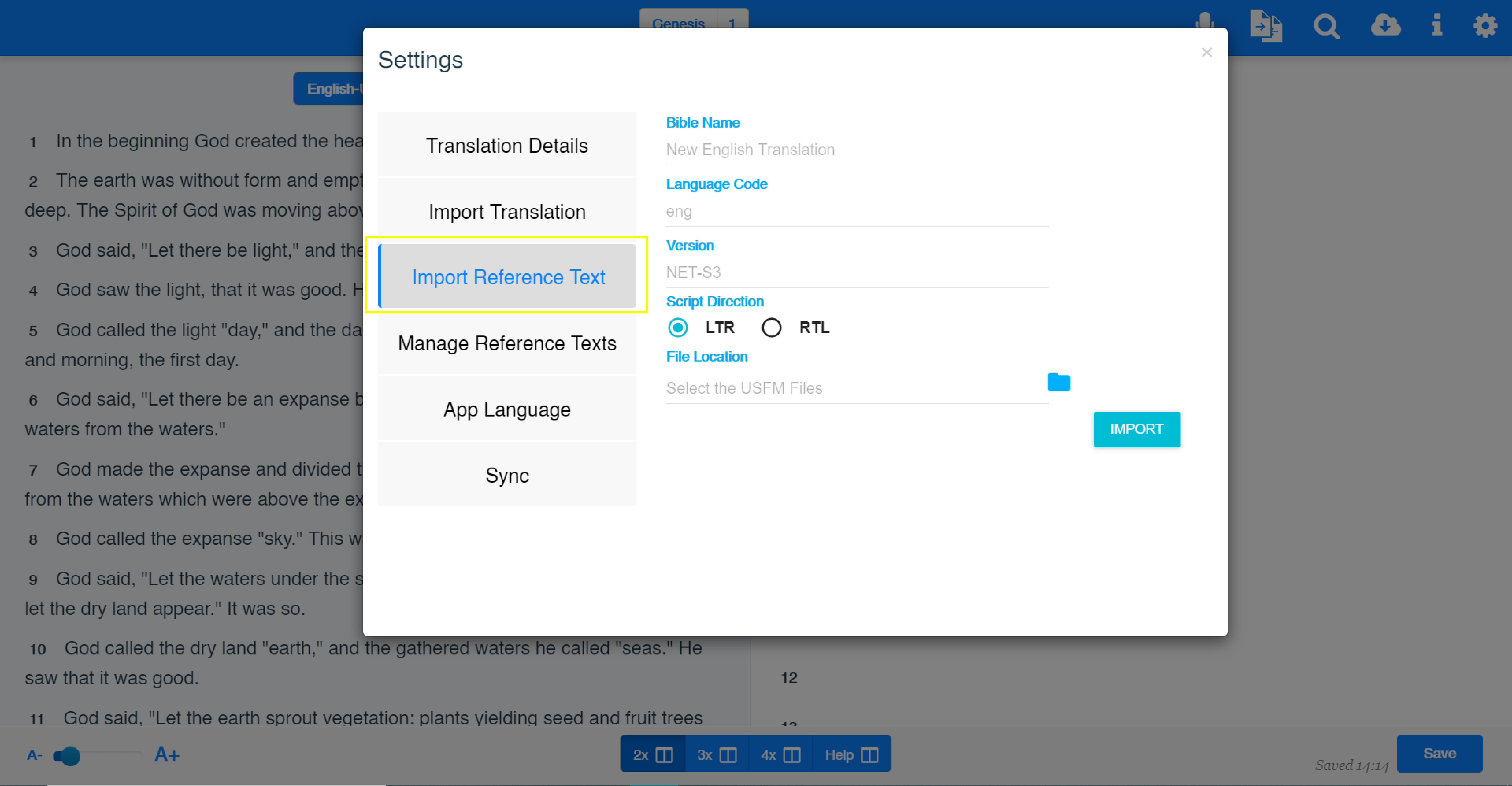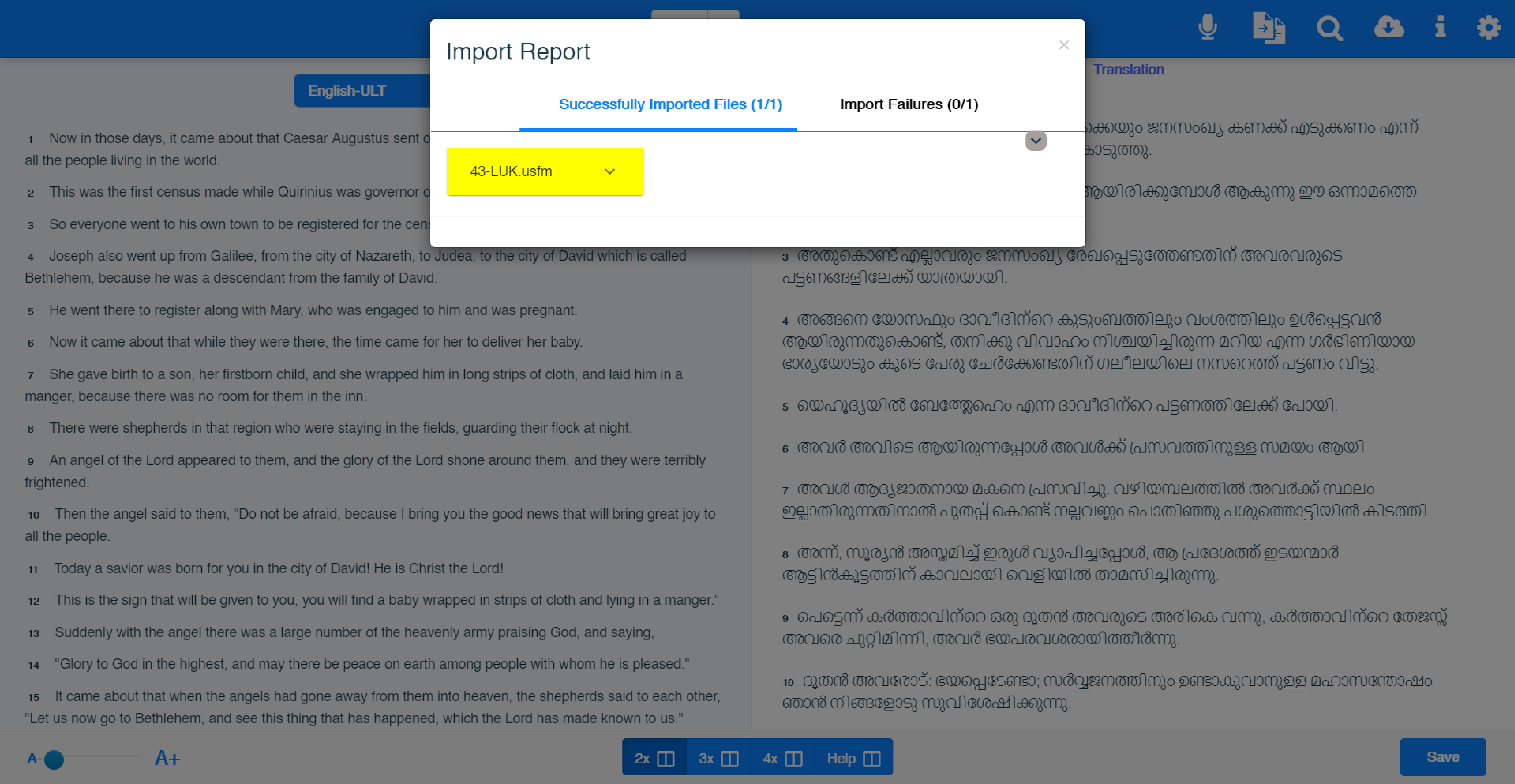How to import reference texts?
To import reference texts needed for your translation, follow the steps below.
- Go to Settings>Import Reference Text
Figure 1.2.1.6 displays the Import Reference Text screen.

Figure 1.2.1.6 - Import Reference Text screen
- Type the name of the reference Bible in the Bible Name field
- Enter the language code of the reference Bible in the Language Code field
- Enter the Version of the reference Bible in the Version field
- Select the Script Direction as LTR if the reference Bible is read from Left to Right
- Select the Script Direction as RTL if the reference Bible read from Right to Left
- Click on the file icon on the right side of the File Location field.
- Browse and select the reference texts that are already saved in your device
- Click Open
- Click Import to import the texts and see the Import Report
Figure 2.3.2.1 displays the Import Report pop up.

Figure 2.3.2.1 - Import Report
Table 2.3.1 explains the details of importing reference texts displayed in the Import Report pop up
| Name | Description |
|---|---|
| Successfully imported files (x/y) | It displays the file names of the reference texts that are successfully imported into the application. x- Number of successfully imported files y- Total number of files that were selected to import. Example: 43-Mat.usfm |
| Import failures (x/y) | It displays the file names of the reference texts that are not successfully imported into the application. x- Number of files that are not successfully imported y- Total number of files that were selected to import Example: 3-Luk.usfm |
Table 2.3.1 - Import Report of the reference texts
note
Possible reasons for import failures:
- Not having a proper /ID tag for the usfm file https://ubsicap.github.io/usfm/identification/books.html
- Not having proper chapter tags
Recommendation: You require all the chapters of the book in the usfm for effective functioning of the application.
You can check your usfm file https://usfm.vachanengine.org/
caution
Check your file before importing, empty chapters will overwrite. Existing content in the application would be overwritten on import.